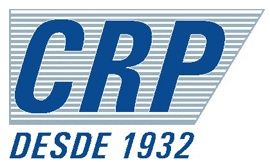Bus companies, passenger transport and tour service.
Caetano Raposo e Pereiras
The company “Caetano Raposo e Pereiras Lda.” - CRP - began its activity on October 14, 1932 in the parish of Maia, island of São Miguel, where they still maintain their headquarters.
Initially it consisted of Virginio Caetano de Oliveira, João Raposo Eusébio Leite, Joaquim Pereira de Morais, Eugénio Pereira de Morais and Eugénio Pereira Furtado joining, in 1958, João Teixeira de Medeiros to this group.
The destitution of this group happens when, years later, the total quota of the company passes to the name of the grandchildren of Virginio Caetano de Oliveira.
For many years, was manager of the company, Eugénio Pereira de Morais succeeding him in this position, João Raposo Eusébio Leite, later José Raposo Eusébio Quental, following Nuno Eusébio de Quental and José da Costa Oliveira, the last one being the current manager of the company.
In the 1930s, the company Caetano Raposo e Pereiras acquired, through transfer, the buses of António de Medeiros - career concessionaire Achada / P. Delgada - and those of Manuel Cabral, who were connecting the Northeast / P. Delgada.
In 1932, Caetano Raposo e Pereiras Lda. secured the Maia / Ponta Delgada connection through its first coal-powered vehicle, and later acquired another vehicle linking Vila do Nordeste to the city of Ponta Delgada.
With these acquisitions, the company started to have the exclusive collective transport in the so-called "Linha-do-Norte", which until then did not happen since Fernando Alcântara was one of its most active competitors, coming to own a bus that went to the parish of Maia.
With the appearance of the first gasoline vehicles CRP acquires three vehicles this time having in mind the Ribeira Grande / Ponta Delgada route, counting until the year 1952 with a fleet of 6 buses. In 1953 with the appearance of diesel-powered vehicles invests in the purchase of two engines, for replacement in two of its vehicles, that moved with gasoline.
In 1958 CRP invested in the purchase of 50% of the share of the company "Auto-Viação Ribeiragrandense, Lda", to the company "Varela, Lda", at the same time as João Teixeira de Medeiros joins the CRP staff taking with him the remaining business value of the extinct "Auto-Viação Ribeiragrandense, Lda", of which he was managing partner.
In 1982 the company has 48 buses of brands "Mercedes", "Volvo" and "AEC" and approximately 120 employees. It also had a workshop in Ponta Delgada, two garages in Maia and others in Pico da Pedra, Ribeira Grande and Rabo de Peixe
Services
At present it counts with 53 buses destined to the collective transport of passengers, in the Municipalities of the Northeast, Ribeira Grande, Ponta Delgada and Povoação, and 68 employees.
Of its facilities are part, in addition to the headquarters in Maia, some offices, body workshops, carpentry and painting and a car park located in Estrada Regional Senhora da Rosa, Fajã de Baixo. Regular specialized transport and occasional transport are other services provided by the company.
The growing commitment to tourism development in the Azores region has led the company “Caetano Raposo e Pereiras, Lda.” to acquire in 2003 and 2004 "mini bus" vehicles, aiming to render service to tourist agents of the island of São Miguel.
Sales Office
Information and Schedules and Prices:
Ponta Delgada296 285 244 (portuguese national call cost)
Ribeira Grande296 472 110 (portuguese national call cost)



